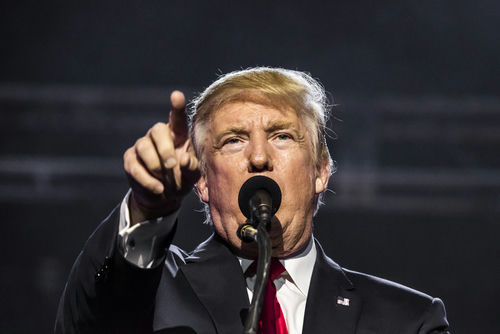President Trump’s vow to invoke the Insurrection Act if liberal courts or leftist local officials block federal troop deployments sends a powerful message: American safety and constitutional order will not be held hostage by activist judges or political grandstanding.
Trump’s Insurrection Act Stand: Federal Action vs. Local Resistance
In late September 2025, President Trump reignited the national debate over federal intervention in urban unrest, declaring he would not hesitate to invoke the Insurrection Act if deadly violence erupts and legal or political obstacles block federal troop deployments. Trump’s stance comes in response to ongoing legal battles with state and local officials, especially in cities like Chicago and Portland, where progressive leaders have historically resisted federal assistance. Trump’s message: the safety of American citizens outweighs bureaucratic red tape or leftist posturing.
Trump’s approach draws on the Insurrection Act, a law dating back to 1807 that empowers the president to deploy military forces domestically in the face of insurrection or civil disorder. This law has been used sparingly—most recently by President George H.W. Bush in 1992 at the request of California’s governor during the Los Angeles riots—but it remains a powerful tool when local governments fail to restore order. Trump’s willingness to bypass court rulings and local resistance signals a break from decades of deference to state sovereignty, reflecting a new era of federal assertiveness on law and order.
Legal Battles and Political Tensions: Courts, Governors, and Federal Power
Trump’s resolve has triggered an immediate backlash from Democrat-led states. Illinois Governor JB Pritzker has announced plans to sue the administration over any National Guard deployment to Chicago, citing state authority and warning of federal overreach. In Oregon, officials and federal courts have already blocked troop deployments, fueling a standoff over who holds ultimate responsibility for public safety in crisis situations. Supporters of Trump’s strategy argue that federal action is justified when local leaders refuse to protect citizens or allow ideologically driven policies to enable unrest and violence.
These legal and political clashes highlight deep divisions over the limits of executive power, federalism, and the role of the military in civil society. Judicial oversight remains a check on presidential authority, but Trump’s public statements emphasize that he is prepared to override court delays or obstruction when American lives are at stake. For conservative Americans frustrated by years of soft-on-crime policies and activist judges, this direct approach offers reassurance that the rule of law will be restored—even if it means challenging the entrenched status quo.
Historical Context and Constitutional Stakes
The Insurrection Act’s use has always stirred debate about balancing federal authority and state sovereignty. While legal scholars caution that invoking the Act without state consent could set troubling precedents, the reality is that inaction during urban chaos has often left communities vulnerable to violence and lawlessness. Trump’s willingness to act, even at the risk of controversy, aligns with conservative values of protecting life, liberty, and property against mob rule or government paralysis. Critics warn that such measures could infringe on civil liberties or erode constitutional norms, but for many Americans, the alternative—unchecked unrest and a breakdown of order—is far worse.
Expert analysis underscores the gravity of deploying military forces domestically, noting the importance of clear legal justification and restraint. Yet, with the memory of previous riots and the failures of left-leaning city officials to curb violence fresh in the public mind, the demand for decisive leadership is strong. Trump’s position appeals to those who value strong executive action in defense of the Constitution and the safety of law-abiding citizens.
Broader Implications for Conservative America
At stake in this debate is not just the handling of immediate unrest, but the long-term precedent for federal intervention and the preservation of constitutional order. If states and courts can indefinitely block efforts to restore peace, the very fabric of American governance is threatened. Conservatives see Trump’s readiness to invoke the Insurrection Act as a necessary corrective to years of government overreach, progressive leniency, and disregard for the rule of law. The outcome of these legal and political battles will shape the boundaries of presidential power and the security of American communities for years to come.
Trump says he’d invoke Insurrection Act if cities face deadly unrest https://t.co/5eEeyYXbHX via @YouTube
— Creamsicle Mussolini (@GoodwineJim) October 7, 2025
While critics fear executive overreach, a growing segment of the public demands action over rhetoric, safety over political gamesmanship, and a return to the principles that have made America strong. As Trump’s administration faces mounting opposition from activist judges and progressive politicians, the question remains: Will federal strength prevail in the defense of order, or will the chaos of the past continue to endanger the nation’s future?
Sources:
Trump says he may invoke Insurrection Act if courts block troop deployments
What You Need to Know About the National Guard, the Insurrection Act, and Martial Law

